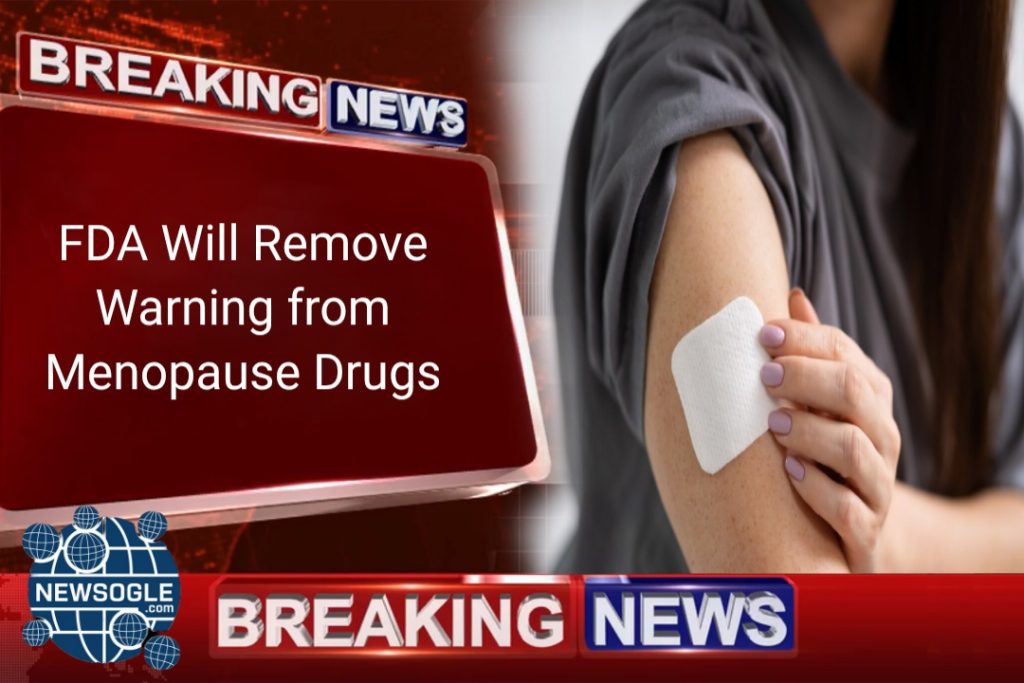
Robert F. Kennedy Jr. has made a significant and controversial claim regarding the future of hormone-based menopause drugs, stating the Food and Drug Administration (FDA) is set to remove the boxed warning that has long been affixed to these medications. The warning label, often referred to as a “black box,” cautions patients and physicians about potential serious health risks associated with hormone replacement therapy (HRT).
The Controversy Behind the Black Box
The black box warning was mandated by the FDA following the publication of the Women’s Health Initiative (WHI) study in the early 2000s. The large-scale clinical trial found increased risks of serious conditions, including stroke, blood clots, breast cancer, and heart disease, in women taking certain combinations of estrogen and progestin.
While subsequent, more refined research has clarified that the risks largely depend on the type of hormone, the timing of initiation, and the duration of use, the black box warning remains a prominent feature on many FDA-approved HRT products.
Kennedy’s claim, made in recent public remarks, suggests the FDA is preparing to reverse its stance, which would be a monumental shift in the regulation and public perception of menopause treatment.
Kennedy’s Stance and the Scientific Debate
RFK Jr., whose campaign has often focused on health and pharmaceutical regulation, framed the potential removal as a necessary correction to outdated scientific policy that has unduly frightened millions of women away from effective symptom management.
“If true, this would be a major victory for women’s health,” said one health advocate who supports re-evaluating the WHI data. “The warning is disproportionately broad and ignores the benefits, particularly for younger women entering menopause, for whom the risk profile is significantly different.”
However, medical professionals remain cautious. While many agree the black box may be too generalized, any move to remove it entirely would require the FDA to formally review the totality of the clinical evidence, which is an extensive and multi-year regulatory process.
The FDA has not publicly confirmed any immediate plans to rescind the black box warning. The agency typically announces such changes through official channels, including regulatory filings or direct press statements, none of which have occurred regarding HRT.
Implications for Menopause Treatment
If the black box warning were officially removed, the impact on the menopause treatment landscape would be profound:
- Increased Prescription Rates: Physicians, particularly those who were practicing during the WHI fallout, may feel more comfortable prescribing HRT, potentially leading to increased usage among women seeking relief from debilitating menopausal symptoms like hot flashes, sleep disturbances, and bone density loss.
- Marketing Changes: Pharmaceutical companies would gain a significant advantage in marketing their FDA-approved HRT products without the mandatory, highly visible caution regarding serious health risks.
- Public Perception Shift: The stigma and fear surrounding HRT—which led to millions of women discontinuing treatment decades ago—could finally begin to dissipate, allowing for more nuanced conversations between doctors and patients.
For now, the claims remain a matter of political rhetoric. Until the FDA issues an official directive, physicians are required to continue advising patients on the risks outlined by the existing boxed warning. Medical and patient advocacy groups will be closely monitoring the FDA for any formal announcement regarding this highly sensitive and consequential aspect of women’s health.

Aleda Kawis is the Professional Journalist and serving in the field since 2012. She keeps extensive experience as investigating journalist and media influencer.







